Detailed introduction of Wroclaw University of Economics:
Introduction
Wroclaw University of Economics is located in Wroclaw, a famous tourist city in Poland. Formerly known as Lange School of Economics, it is an influential institution of higher learning in economics, which has trained a large number of professionals in the economic field for Poland and the international community.
Overview
Number of students: Currently there are about 14,000 students.
Number of faculty and staff: There are 784 academic teachers, including 142 professors.
History and establishment time
The school was founded in 1947 and was originally a private business school called Wyższa Szkoła Handlowa. In 1954, it was nationalized and renamed Wyższa Szkoła Ekonomiczna. In 1974, it was named after the Polish economist Oskar Lange. In 2008, it was renamed the current name Wroclaw University of Economics.
School Strength
Faculty: It has a team of highly professional and experienced teachers, including experts and scholars with profound attainments and international influence in the field of economics. They not only impart cutting-edge professional knowledge to students in teaching, but also actively participate in scientific research projects to promote the development of disciplines.
Teaching Facilities: The school is equipped with complete teaching facilities, the central library has a collection of 340,000 books and 1,000 The school has a number of periodicals, a convenient network in the computer center, three bookstores on campus, a swimming pool, a gym and an activity room in the sports center, and a medical center on campus, providing students with good learning, living and health protection.
Scientific research results: The school has achieved fruitful scientific research results in the field of economics. Its research papers are published in international and domestic journals all year round. It has in-depth research and exploration in multiple disciplines such as regional economy, finance, and management, providing important theoretical support and decision-making basis for Poland's economic development and policy formulation.
International cooperation: The school actively carries out international cooperation and is one of the participating institutions in the EU Socrates-Erasmus exchange student program. It has established cooperative relations with more than 200 universities around the world, such as cooperating with universities in Belgium, France, Ireland, Germany and the United Kingdom to carry out EMBA projects, providing students with broad international exchange and learning opportunities.
Institutional nature
Public university.
Educational philosophy
Focus on cultivating students' economic thinking ability and practical application ability, emphasizing the combination of theoretical knowledge with actual economic problems, so that students can skillfully use the knowledge they have learned to solve real economic challenges. At the same time, we pay attention to the cultivation of students' innovative ability and teamwork spirit, and stimulate students' creativity and cooperation awareness through teaching methods such as case analysis and project practice to adapt to the ever-changing economic environment and market demand.
Key laboratories and disciplines
Key laboratories: Although there is no explicit mention of particularly famous key laboratories, the school has various professional laboratories and research centers, which provide data support and practical platforms for the teaching and scientific research of economic disciplines, such as economic analysis laboratories and financial laboratories, to help students better master economic analysis tools and the laws of financial market operation.
Key disciplines: Economic science, finance and accounting, informatics and econometrics, international economic relations, business informatics, management, management and production engineering, economic analysis, European studies, logistics, space economy, tourism and other disciplines are the school's key disciplines, which have outstanding teaching quality, scientific research level and social influence.
Faculty
The school has four colleges:
School of Economic Sciences: Covering majors such as economics and economic analysis, it cultivates students' ability to analyze and understand macro and micro economic phenomena, and lays a foundation for students to engage in economic research, policy formulation and other work.
School of Management, Computer Science and Finance: including finance, accounting, business informatics, management and other majors, combining management theory with computer technology and financial knowledge to cultivate compound talents that meet the needs of modern enterprise management and financial markets.
School of Engineering and Economics: with majors such as production management, engineering, logistics, etc., focusing on the cross-integration of engineering technology and economic management, so that students can make effective economic decisions and management in the fields of industrial production, logistics management, etc.
School of Regional Economy and Tourism: focusing on professional directions such as regional economic development and tourism management, cultivating students' research and management capabilities on the economic characteristics and tourism markets of specific regions, and contributing to the prosperity of local economic development and tourism industry.
Ranking
Ranked third among Polish universities of economics.
Between 2015 and 2020, its Bachelor of Finance program was certified by EFMD, ACCA and CFA, becoming the only university in Poland to have obtained triple certification at the same time.
In 2020, the school has applied to start the "AACSB" certification, the highest honor for world business schools.
Expenses
Tuition fees: The annual tuition fees for undergraduate and master's degrees are about 2,500 euros (about 20,000 RMB).
Registration fee: about 200 euros (about 1,600 RMB).
Campus
Location and environment: The main campus is located in ulica komandorska near the center of Wroclaw, with convenient transportation and rich cultural and commercial facilities around, providing convenient conditions for students' study and life. In addition, the Regional School of Economics and Tourism is located on an independent campus in Jelenia Góra.
Campus facilities: The campus building style is modern. In addition to the above-mentioned facilities such as the library, computer center, sports center and medical center, the school also has restaurants, cafes and other leisure places, providing students with a comfortable learning and living environment. At the same time, the campus is equipped with advanced teaching equipment and multimedia classrooms to meet the needs of modern teaching.
-
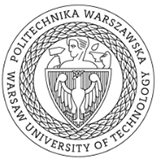
Warsaw University of Technology
-

Poznan University of Life Sciences
-
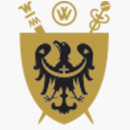
Wroclaw Medical University
-

Nicolaus Copernicus University
-
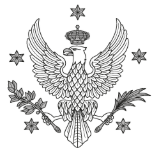
University of Warsaw
-
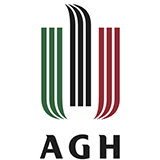
AGH University of Science and Technology
-
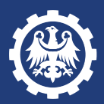
Silesian University of Technology
-
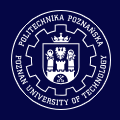
Poznan University of Technology
-

Jagiellonian University
-
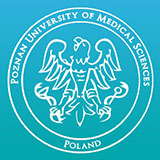
Poznan University of Medical Sciences
-

Mesoamerican University
-

Istmo University
-

Mariano Galvez University of Guatemala
-

Regional University of Guatemala
-

Galileo University
-

Francisco Marroquín University
-

Rafael Landívar University
-

University of the Valley of Guatemala
-

University of San Carlos of Guatemala
-

Technological Institute of Tlaxcala Plateau
-

Golfo University
-

Technological University of South Sonora
-

Technological University of Huejotzingo
-

Tizimín Institute of Technology
-

Chilpancingo Institute of Technology

